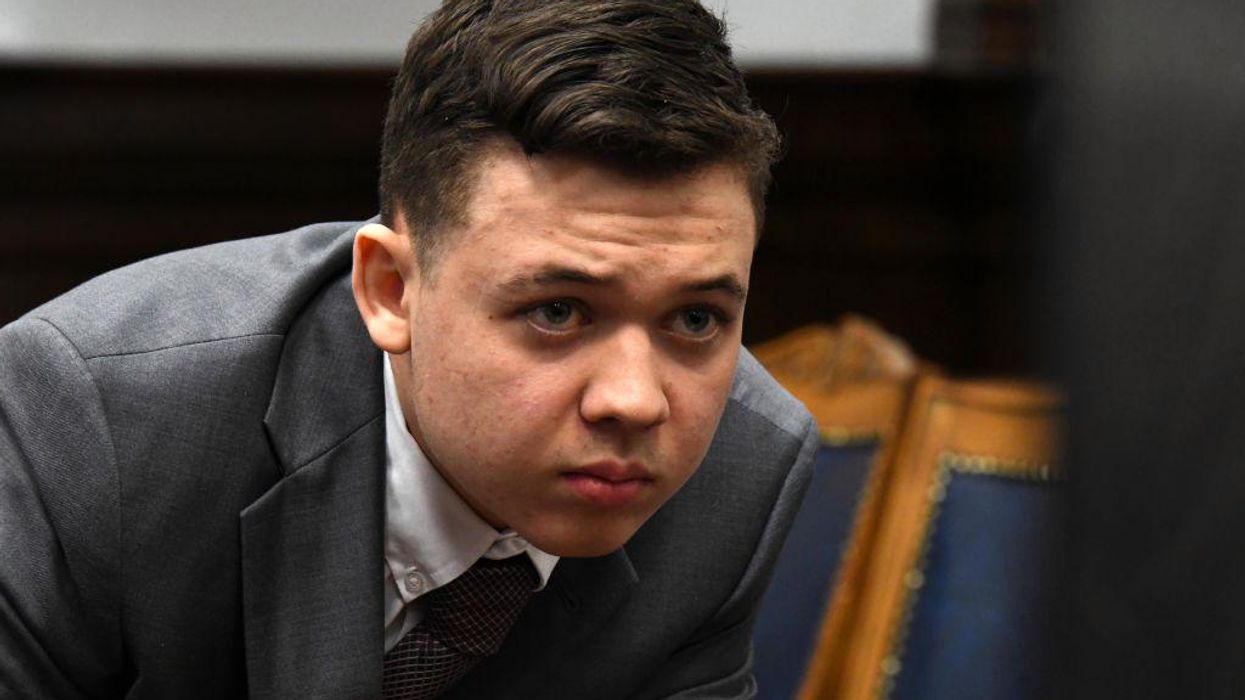
Mark Hertzberg-Pool/Getty Images

The judge presiding over the Kyle Rittenhouse trial in Kenosha, Wisconsin, dismissed a lesser gun charge against the teenager on Monday ahead of closing arguments and jury deliberations.
The charge, possession of a dangerous weapon by a person under 18, was considered to be the prosecution's easiest charge to prove in court, and so its dismissal may well spell doom for the state's case against Rittenhouse.
Rittenhouse is facing multiple felony murder charges for fatally shooting two men and wounding a third during Black Lives Matter riots in Kenosha last summer. The Illinois native was 17 years old at the time of the incidents and has claimed he was only acting in self-defense.
"While only a misdemeanor charge, it appeared to be the most likely count to result in a conviction for Rittenhouse," WBBM-TV reported Monday, moments after the firearm charge was dismissed. If he had been convicted on the charge, Rittenhouse could have been assigned 12 months in jail.
But Kenosha County Circuit Judge Bruce Schroeder determined Tuesday that Wisconsin's open carry law allows minors to carry rifles in the state, so long as they have a barrel longer than 16 inches or an overall length of more than 26 inches.
The prosecution disagreed with Schroeder's interpretation of the law but conceded that the length of the AR-15 carried by Rittenhouse was more than the lengths specified, and so Schroeder dismissed the charge, Kenosha News reported.
Rittenhouse still faces five charges — including first-degree reckless homicide in the death of Joseph Rosenbaum and first-degree intentional homicide in the death of Anthony Huber — that would result in a mandatory life prison sentence should he be convicted.
After closing arguments conclude Monday afternoon, the jury will begin deliberating; that is, unless Schroeder declares a mistrial with prejudice in response to the defense's request.
The defense formally asked for the mistrial last week after the prosecution cast Rittenhouse's use of his constitutional right to remain silent in a negative light and brought up an incident that had been excluded in a pretrial order without the judge's permission.
The behavior resulted in a fiery scolding from Schroeder as the judge dressed down Kenosha County Assistant District Attorney Thomas Binger.
Many in the media now suggest the assessment of guilty verdicts is unlikely, but the jury will have the final say.